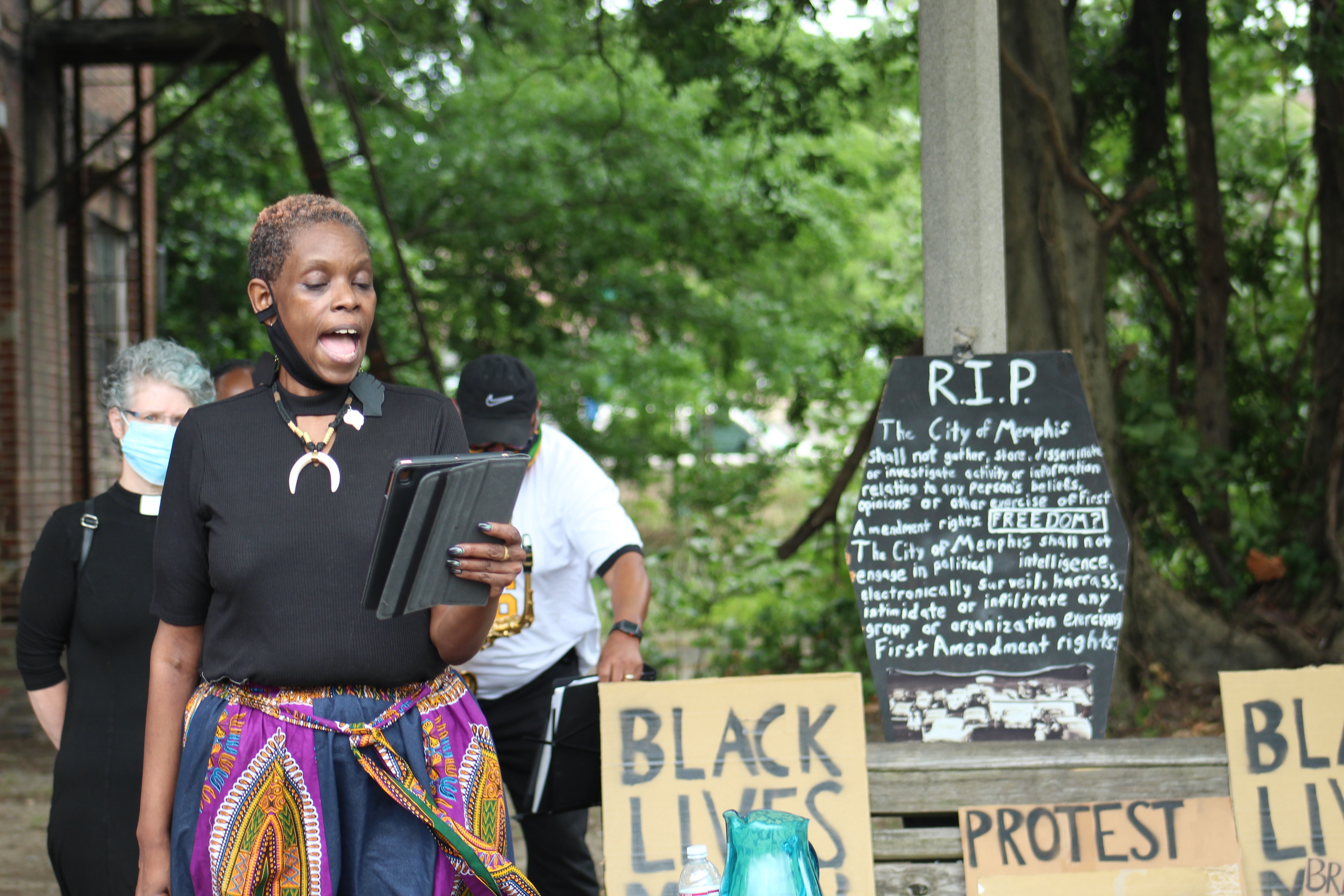 Maya Smith
Maya Smith
Rev. Regina Clarke, also with the Poor People’s Campaign speaks.
A couple dozen people gathered Downtown Memphis on Monday to rally for justice and an end to systemic racism.
The demonstration, organized by the Poor People’s Campaign, took place in Army Park, where a historical marker stands commemorating the Memphis Massacre of 1866. The massacre lasted three days, over which a white mob led by law enforcement killed approximately 46 black people, raped several black women, and burned churches, schools, and other black establishments.
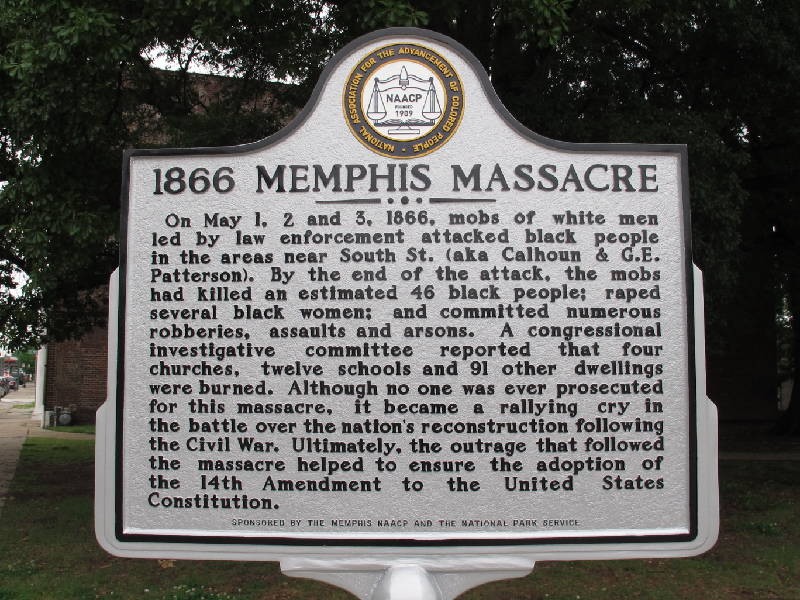 Maya Smith
Maya Smith
After reading the words from the historical marker, Rev. Edith Love with the Poor People’s campaign said violence by white people toward black people has not stopped, but that “it has merely evolved.”
“As we stand in the very spot where white police officers and other white men committed acts of unspeakable violence in 1866, consider carefully the deaths of unarmed citizens by the hands of police,” Love said. “And I ask you how much has really changed?”
Monday Rev. Regina Clarke, also with the Poor People’s Campaign, after leading a prayer, called on the country to stop “all forms of systemic racism.”
“Today I want to pray for everyone who has been impacted by systemic racism, denial of health care, and police brutality,” Clarke said. “We also want to make sure we call out and make prominent the names of those here in Memphis who have been impacted by police brutality. We see the violence of injustice, we see the violence of racism against black people, Latinos, First Nations, and people of color. We know this violence is a threat to all humanity in this yet to be perfect union.”
Specifically, Clarke called for an end to “perpetuating poverty,” along with equal access to healthcare, decent housing, voting rights, equitable education, and “the chance to survive and thrive.”
“We hear the cries of the poor people and low wealth in a land of abundance,” Clarke said. “We hear the fear of death among the uninsured and under-insured. We hear the groans of ecological devastation and environmental violence. We feel the violence of militarism all around.”
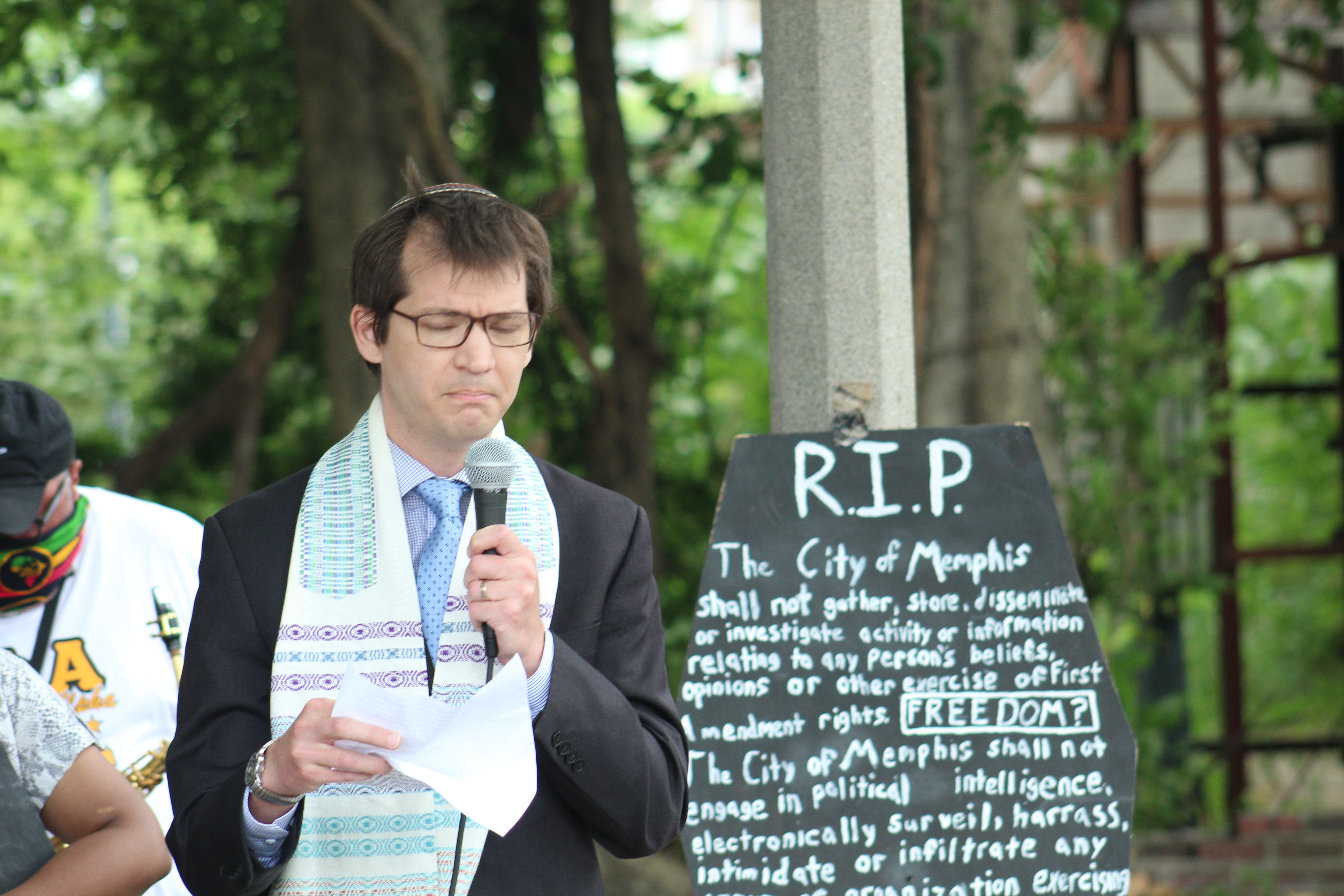 Maya Smith
Maya Smith
Rabbi Jeremy Simons of Temple Israel spoke about mourning
Rabbi Jeremy Simons of Temple Israel spoke about mourning in the Jewish faith, saying he is there for “solidarity in presence and partnership.”
“When you enter a house of mourning or when you encounter someone who is mourning, you walk into their house, you sit down, and shut up,” Simons said. “You offer your presence and nothing else.”
Simons continued, saying that this is not only a period of mourning, but also of “self reflection in the face of systemic injustice.”
Frank Johnson of Abyssinian Missionary Baptist Church also spoke Monday, after singing a verse of “Amazing Grace.”
“Black lives matter because we built this city and this country, but still this country wants to disrespect our lives,” Johnson said. “It wants to tell us to be quiet when we are talking about our issues and problems, but it always wants our bodies when it needs it.”
The demonstrators then paused and reflected in silence for eight minutes and 45 seconds, the amount of time a police officer knelt on the neck of George Floyd.
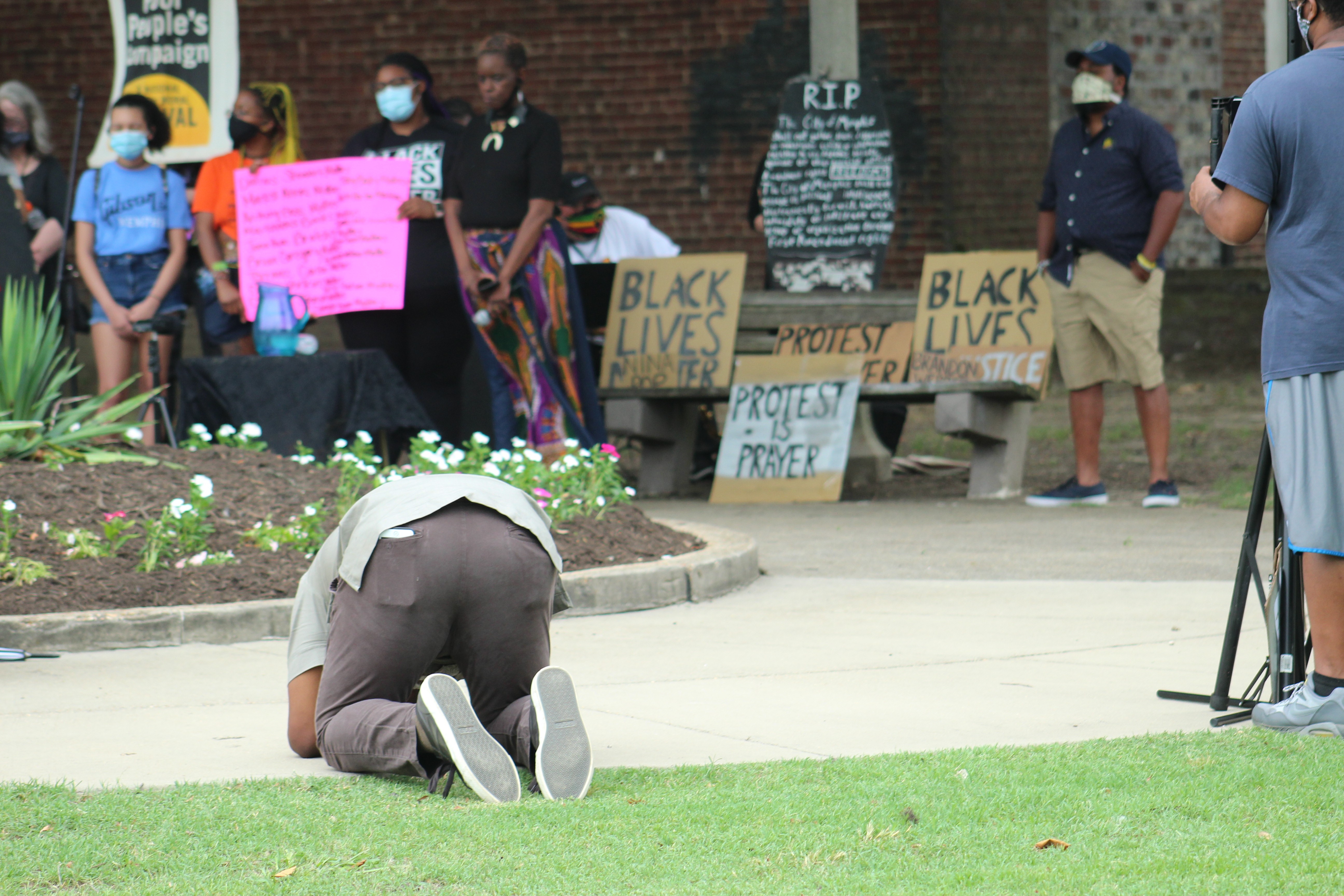 Maya Smith
Maya Smith
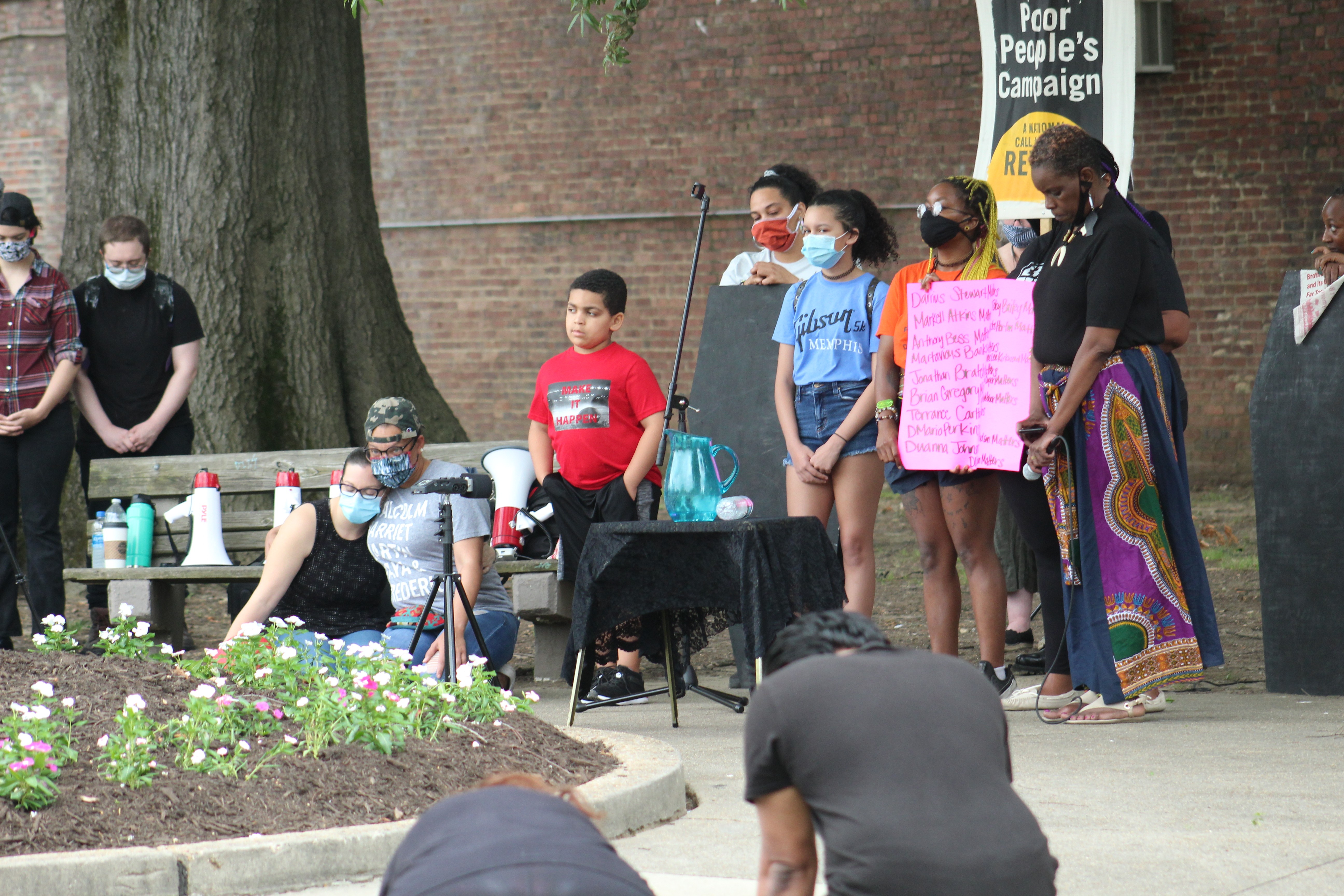 Maya Smith
Maya Smith
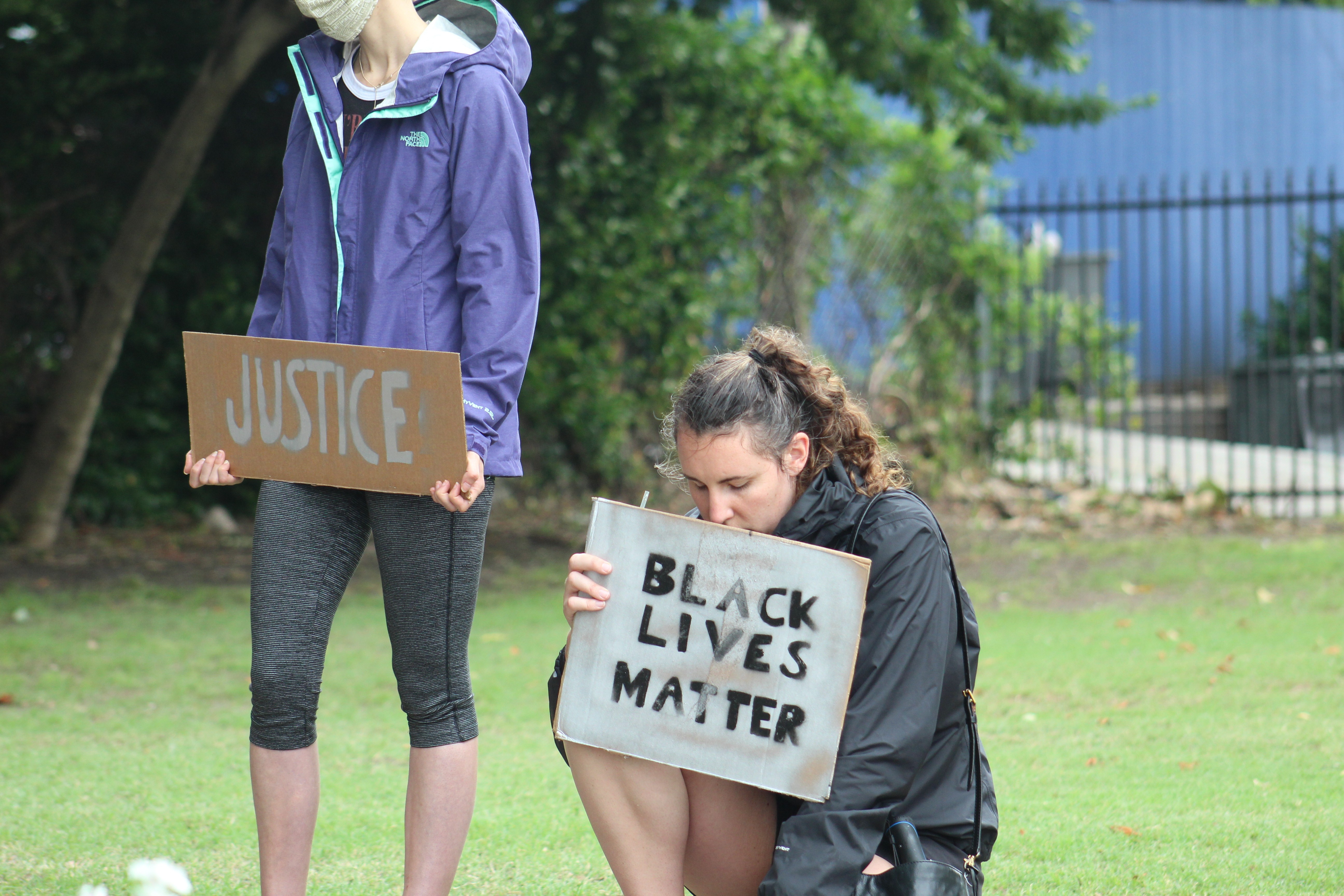 Maya Smith
Maya Smith
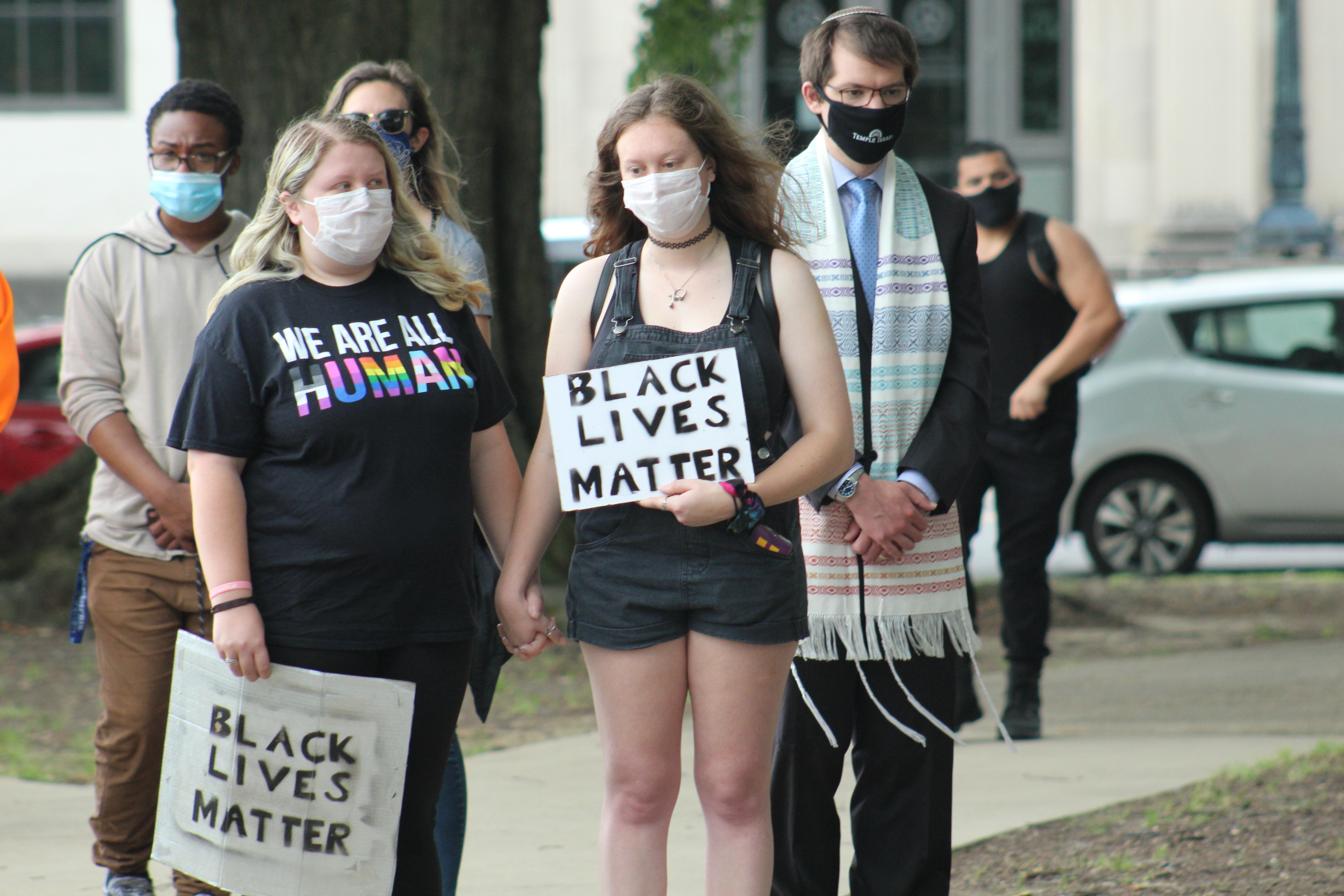 Maya Smith
Maya Smith
Demonstrators take a moment of silence